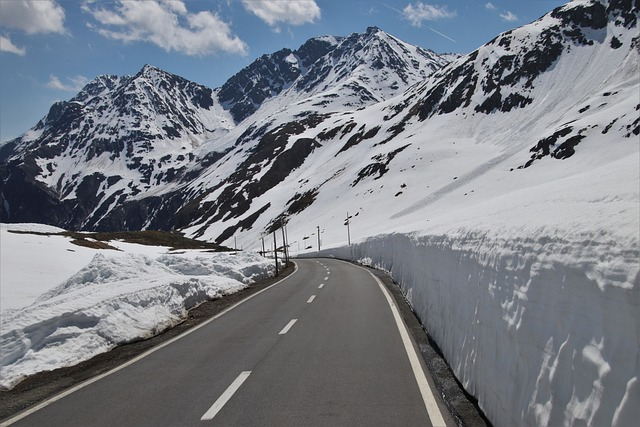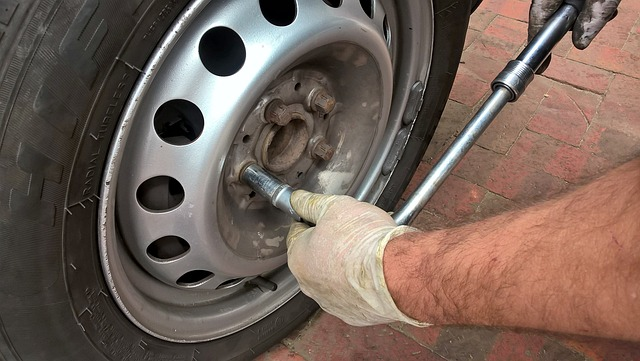Hitting the open road in a recreational vehicle (RV) is an exciting and liberating way to explore the country. However, with great freedom comes great responsibility. RV accidents can be a real risk, but understanding the contributing factors and taking preventative measures can significantly reduce the likelihood of an accident. Ready to learn more? Let’s dive in and discover what are the main contributing factors to RV accidents and how to avoid them.
Key Takeaways
- Awareness of common causes of RV accidents, such as driver inexperience and speeding, is essential for safe driving.
- Proactive measures like route planning and taking an RV driving course can help reduce the risk of accidents.
- Regular maintenance checks are necessary to ensure safety when operating a recreational vehicle.
Understanding RV Accidents: Common Causes

The thrill of RVing comes with its challenges, and accidents do happen. Several common causes of RV accidents include driver inexperience, speeding, and overloaded RVs. These factors can turn a fun adventure into a nightmare on the road.
Gaining knowledge about these causes equips you for a safer journey and contributes to the protection of other road users as well.
Driver Inexperience
Driving an RV is a whole different ball game compared to a regular car. Many RV drivers, particularly those new to RVing, may be inexperienced drivers lacking the experience and skills necessary to safely navigate these large vehicles. Practicing driving and braking an RV before embarking on a journey can assist novice drivers in dodging accidents.
Along with honing your driving skills, it’s equally significant to familiarize yourself with the unique features of your passenger car or RV. For instance, Class B vans are generally the most secure option, as they are equipped with front airbags and full seat belts for multiple passengers, not only the two in the cab. Familiarizing yourself with your RV’s safety features can help prevent accidents caused by tired drivers.
Speeding
Speeding is a common cause of RV accidents, as it reduces the amount of time available for drivers to make decisions and respond to potential hazards. Keeping your speed under 60 miles per hour when maneuvering an RV is a smart move. Speeding not only increases the risk of losing control of your vehicle but can also cause increased stopping distance, driving fatigue, and increased wear on your RV.
Remember, when driving an RV:
- RVs are typically slower and less maneuverable than other vehicles
- Slowing down gives you more time to react to any unexpected situations
- Slowing down can prevent accidents caused by careless driving.
Overloaded RVs
Overweight RVs can lead to a host of problems, including tire blowouts, suspension damage, and reduced maneuverability. Being conscious of your RV’s weight limits and not adding too much weight is necessary to prevent insurance complications and guarantee a secure trip. To avoid these issues, it’s crucial to steer clear of an overloaded RV.
An unevenly loaded RV can also cause the vehicle to pull in one direction, increasing the risk of accidents and tire blowouts. To avoid overloading your RV, make sure to weigh it at least annually, especially if you’re new to RVing. This simple step can help prevent accidents and ensure a smoother ride for everyone on board.
Weather-Related Factors

Weather conditions play a significant role in RV accidents. High winds and rain can make it difficult to maintain control of the vehicle, increasing the likelihood of accidents.
As an RV operator, being mindful of weather conditions and modifying your driving habits accordingly is key.
High Winds
Driving an RV in high winds can be challenging. Lightweight vehicles are especially susceptible to being pushed around, making it difficult to maintain control and increasing the risk of a collision.
In windy conditions, slowing down and proceeding with caution is of utmost importance. As a general guideline, it is advisable to refrain from driving an RV in winds that exceed 50 mph, as wind speeds nearing 60 mph can have enough force to overturn an RV.
Rain and Wet Roads
Rain and wet roads can create hazardous driving conditions for RVs. Wet roads reduce traction, making it difficult for the RV to maintain control and stop quickly, thus increasing the braking distance and probability of a collision.
Additionally, rain can make the road surface slippery, particularly if there is oil and gas residue on the pavement, further reducing traction and increasing the risk of skidding or sliding off the road. Reduced visibility during rainstorms can make it hard for RV drivers to detect other vehicles, pedestrians, or obstacles on the road, raising the chances of accidents.
Modifying your speed to adhere to the speed limit and maintaining a safe distance in wet conditions is vital for road safety.
Driving Behaviors That Increase Risk

Certain driving behaviors, such as distracted and impaired driving, can significantly increase the risk of RV accidents. Being a responsible RV driver involves identifying and sidestepping these hazardous habits to ensure your safety and that of others sharing the road, ultimately preventing an rv accident.
Distracted Driving
Distracted driving is any activity that diverts a driver’s attention away from the task of driving, such as using electronic devices or engaging in other activities while driving. Research from the National Highway Traffic Safety Administration (NHTSA) has revealed that distracted driving is responsible for 25-50% of all crashes.
To lessen the chances of accidents, staying focused on the road and steering clear of any distractions that could divert your attention is paramount.
Impaired Driving
Impaired driving, including alcohol, drugs, or fatigue, can lead to delayed reactions and suboptimal decision-making, thus raising the likelihood of collisions. It is strongly advised that RV drivers do not operate their vehicle while under the influence of any type of alcohol or drugs, as this can lead to serious consequences.
In addition to alcohol and drugs, driving while fatigued is another form of impairment that can increase the risk of accidents. Taking regular breaks and resting when necessary is pivotal for a safe and pleasurable RV journey.
RV Maintenance and Equipment Issues

Proper RV maintenance and equipment checks play a vital role in preventing accidents. Maintaining your RV in top-notch condition can assist in avoiding mishaps caused by tire blowouts, hitch and towing equipment malfunctions, among other issues.
Tire Maintenance
Routine tire maintenance is vital for RV safety as it aids in preventing blowouts and other tire-related incidents. Ensuring that your RV’s tires are properly inflated and regularly inspected for wear can help prevent accidents. It’s important to maintain the correct tire pressure to guarantee optimal performance and safety when driving an RV.
Additionally, it’s generally suggested to replace RV tires every three to six years to ensure their reliability and prevent tire-related accidents.
Hitch and Towing Equipment
Correct installation and maintenance of hitch and towing equipment are paramount to prevent mishaps due to detached trailers or partially detached tow vehicle issues. Regularly inspecting your hitch and sway bars for rust or corrosion can help prevent towing hitch fails and ensure a safe journey.
Maintaining RV hitch and towing equipment not only helps uphold stability and control while towing but also facilitates proper weight distribution, which is critical for safe towing and averting excessive strain on the vehicle. By ensuring the center of gravity is well-balanced, you can further enhance the safety and performance of your towing experience.
Navigating RV Blind Spots and Maneuverability Challenges

Navigating RV blind spots and maneuverability challenges can be difficult, but understanding these issues can help prevent accidents. So, take a look at some tips and techniques to overcome these challenges.
As a recreational vehicle operator, being cognizant of the distinctive challenges that come with handling a large vehicle, like blind spots and maneuvering in tight spaces, is vital.
Blind Spots
Given that RV blind spots are larger than those in cars, it’s imperative for drivers to adjust mirrors correctly and stay alert to their surroundings. Familiarizing yourself with your RV’s blind spots, such as the space right next to the front door, the area in front of the RV, and the passenger side next to the passenger seat, can help you avoid accidents.
Utilizing additional equipment like backup cameras can further improve visibility and reduce blind spots, ensuring a safer journey.
Maneuvering Challenges
Maneuvering challenges, such as making turns and stopping, require different techniques in recreational vehicles compared to a car. Honing these skills can aid in avoiding accidents that stem from inexperience and insufficient knowledge.
For instance, when navigating tight corners, it’s essential to plan ahead, utilize turn signals well in advance, and take corners a bit wider to avoid jack-knifing. Calculating the RV tail swing and adjusting your driving accordingly can also help prevent collisions.
Preventative Measures for Reducing RV Accidents

Taking preventative measures can greatly reduce the risk of RV accidents. Advance route planning, enrolling in RV driving courses, and diligent vehicle maintenance are steps towards a safer and more enjoyable journey on the open road. Choosing the right RV insurance company can also provide peace of mind during your travels.
Planning and Route Selection
Planning routes in advance and considering weather conditions can help ensure a safer RV journey. Avoiding traffic-heavy areas and taking weather conditions into account can reduce the risk of accidents.
Utilizing an RV GPS, such as RV Trip Wizard, can also help you effectively plan and navigate your journey, ensuring a smoother and safer experience.
RV Driving Courses

RV driving courses can impart valuable knowledge and practical experience in handling large vehicles, thereby minimizing accidents due to lack of experience. These courses can help you become more acquainted with the characteristics and abilities of your RV, as well as the regulations of the road, ensuring a safer and more enjoyable experience.
By taking a course, you can learn how to properly maneuver your RV in tight spaces, how
Summary
In conclusion, understanding the common causes of RV accidents, such as driver inexperience, speeding, and overloaded RVs, is crucial for a safe and enjoyable journey. By taking the time to learn about your RV’s unique challenges, practicing safe driving habits, and maintaining your vehicle, you can minimize the risk of accidents and fully enjoy the freedom of RV travel. Remember, safety first – happy RVing!
Frequently Asked Questions
Which of the following is a cause of RV accidents?
Excessive speed and driving too fast for conditions are the most common causes of RV accidents.
What are 4 main causes of accidents?
The four main causes of accidents are overspeeding, drunken driving, distractions to the driver, and avoiding safety gear such as seat belts and helmets. All of these can lead to dangerous or even fatal consequences if not addressed appropriately.
What is the #1 contributing factor in many crashes?
Driver error is the number one contributing factor to many crashes, with 41% of crashes being attributed to recognition errors according to a NHTSA report.
What are the contributory factors of accidents?
Driver inattention, distractions, and drunk and drugged driving are all major contributory factors of accidents. Unsafe driving habits, such as speeding and fatigue, also play a part in the occurrence of vehicle collisions. Therefore, drivers must be mindful to drive carefully and responsibly.
What is the recommended speed limit for RVs?
RVs should not exceed a speed of 60 miles per hour to ensure the safety of all motorists.

